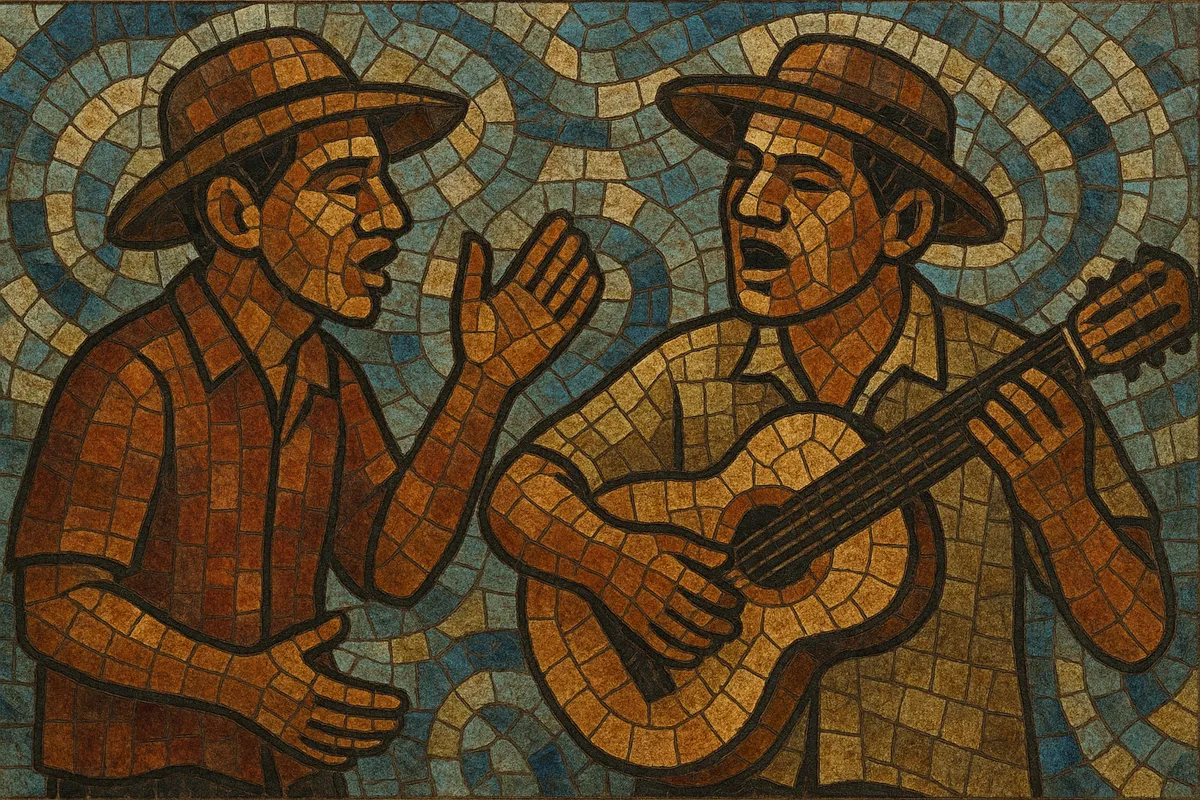Repente (also called cantoria de viola or repentismo) is a Northeastern Brazilian tradition of improvised sung poetry in which two singers (repentistas) engage in lyrical duels.
Accompanied primarily by the viola caipira (ten‑string guitar), performers improvise verses on a given theme, responding to one another with wit, metaphor, humor, and social commentary.
Common metrical forms include sextilha (six lines), septilha (seven), décima (ten, often in the Espinela scheme), and hendecasyllabic patterns such as galope à beira‑mar and martelo agalopado.
Repente is closely connected to cordel literature and to public challenges (desafios), and it thrives in markets, fairs, festivals of violeiros, and radio/TV contests across Brazil’s Northeast.
Repente arose in Brazil’s Northeast during the 19th century, blending Iberian improvised song traditions brought by Portuguese colonizers with local oral‑poetic practices. The use of the viola caipira and fixed stanza schemes provided a framework for extemporaneous verse, while public "desafios" (challenges) fostered a culture of competitive wit.
By the early 20th century, the practice had consolidated around canonical meters and rhyme schemes—sextilha, décima (often in the Espinela pattern), galope à beira‑mar, and martelo agalopado—each with strict syllabic counts and stress patterns that guide performance. Ties to cordel literature encouraged narrative themes, moral parables, satire, and regional pride, and helped standardize motifs such as the mote (a given line or theme) and its glosa (development).
From mid‑century onward, radio programs, market‑day stages, and formal "festivais de violeiros" popularized repentistas across Pernambuco, Paraíba, Ceará, Rio Grande do Norte, and Alagoas. Recordings and TV further extended the audience, while schools, cultural centers, and competitions helped train new performers in metrics, accompaniment patterns, and improvisation.
Today, repente remains vibrant: repentistas perform live duels, release recordings, and appear on digital platforms. The tradition continues to evolve through exchanges with embolada and urban improvisation cultures, without abandoning its core: quick‑thinking poetic dialogue, strict prosody, and the resonant timbre of the viola caipira.


